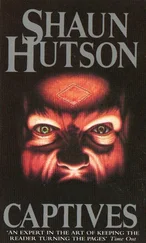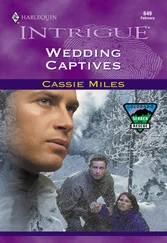Norman Manea - Captives
Здесь есть возможность читать онлайн «Norman Manea - Captives» весь текст электронной книги совершенно бесплатно (целиком полную версию без сокращений). В некоторых случаях можно слушать аудио, скачать через торрент в формате fb2 и присутствует краткое содержание. Год выпуска: 2014, Издательство: New Directions, Жанр: Современная проза, на английском языке. Описание произведения, (предисловие) а так же отзывы посетителей доступны на портале библиотеки ЛибКат.
- Название:Captives
- Автор:
- Издательство:New Directions
- Жанр:
- Год:2014
- ISBN:нет данных
- Рейтинг книги:3 / 5. Голосов: 1
-
Избранное:Добавить в избранное
- Отзывы:
-
Ваша оценка:
- 60
- 1
- 2
- 3
- 4
- 5
Captives: краткое содержание, описание и аннотация
Предлагаем к чтению аннотацию, описание, краткое содержание или предисловие (зависит от того, что написал сам автор книги «Captives»). Если вы не нашли необходимую информацию о книге — напишите в комментариях, мы постараемся отыскать её.
Captives
This is a moving account of a country shaken by communism and anti-Semitism and haunted by recent atrocities, from "a distinguished writer whose vision of totalitarianism is close to Kafka's cloudy menace, universal yet internalized" (Richard Eder,
).
Captives — читать онлайн бесплатно полную книгу (весь текст) целиком
Ниже представлен текст книги, разбитый по страницам. Система сохранения места последней прочитанной страницы, позволяет с удобством читать онлайн бесплатно книгу «Captives», без необходимости каждый раз заново искать на чём Вы остановились. Поставьте закладку, и сможете в любой момент перейти на страницу, на которой закончили чтение.
Интервал:
Закладка:
— Yes, you gave it to me.
— I’d like it back. I’ve learned he doesn’t work here anymore.
— Well, I was telling you that earlier, but you ran off, so I put the envelope on view here, at the information window.
— Yeah, I was in a rush.
— Well, that’s clear. Rushing around like that do you any good? He smiled roguishly. Anyhow, here’s the envelope. Take it.
He bustled off to the window, came back and held out the envelope, which I was about to tear in half.
— What’s up with that? First you write, then you rip? That’s not very thoughtful. Better if you don’t tear it up.
Written in crooked sprawl with a badly sharpened pencil, the name Virgil Mehedinţi had been crossed out with a diagonal line in ink.
— Anyhow, the comrade just passed by here. He comes from time to time. He read the note. Left you an answer. . He thought you might come back to get it.
If, therefore, I should find myself at the best hotel in city B, it would be possible to allow myself the joke of asking if any letters had arrived for me. The receptionist would hand me a letter with my own name, addressed to Room 307, the room I’d just been assigned to. Then it wouldn’t be possible that the preceding resident coincidentally had the same name as me, but it would seem that the previous tenant and I had common acquaintances, since the note left for him would have been signed by a good friend of my father’s. .
I didn’t have any other choice, so I opened the envelope: “You’ve gone rather overboard. Stop by my place in six months. V.M.”
Without wanting to, I’d rolled six twice, in two different throws of the dice. Should we find these coincidences interesting ? Perhaps yes, if the appearance of the event truly concerns or interests us. The fact that Father’s arrest coincided with Mehedinţi’s dismissal was a matter of interest to me, and I was glad to have my deadlines, occupations, and responsibilities.
Now I knew that someone would be waiting for me in six months time. I could let myself leave, again, at the mercy of any night train.
• • •
It was probably April when the train took me again. Left at night, arrived at dawn in a dirty, deserted station. There were three hours before being able to proceed. It was cold. Went into the waiting room. Huddled near their luggage, a few passengers slept on wooden benches. Numb from traveling, propped my feet on a bench like the others. The dull light stung my eyes. Saw the remains of a book down at the other end of the bench, by my shoes. Pulled it toward me. Pages were missing. Someone had probably forgotten it. The fragment began on page 58 and ended at 91. The hero, it seems, wanted to get to a secluded place where he would meet an important character. Proper nouns were not mentioned: perhaps they had been mentioned at the beginning, but were no longer being used. It was necessary to cross a body of water. The hero had found a boat. The night before the crossing, he came down with a curious illness the locals called “fog sickness.” The young man was shivering and trembling; he had fever and talked about himself in the third person, as if narrating someone else’s story. The meeting could only take place at specific times, over great intervals. Anyone who missed one meeting couldn’t count on living long enough to see another. It seems that the hero had a meeting with his own self, and that a kind of retribution or resolution would take place at this distant spot. The fragment ended on page 91, just when it was starting to get interesting.
The waiting room had filled with other passengers. Many people were standing — propped between suitcases — the noise had increased. Looked at the clock: there was another hour to go. Stretched out my hand for the book again and bumped into someone’s shoulder. The bench was occupied. Had dozed off. Went out onto the platform, then behind the station. The bus came shortly afterward. We crowded aboard. The driver was ripping tickets from a book. Managed to find a seat. Our route crossed several villages and small towns. We traveled for two hours. Arrived at a small fishing village. From here we could cross to the other bank by boat in the afternoon. The bus had emptied in front of a place called The Village Buffet. Looked at those disembarking passengers. Judging by the way they moved and by their parcels of food and necessities, it looked like we would make the next portion of the journey to the prison together, too. The boat was leaving at noon.
The muddy water ran backward, ground by the boat’s paddles. A powerful smell of gas came from the motor. Had eaten nothing. The movement of the boat, the smell of gasoline, and people’s flapping clothes were making me dizzy. Sat down on one of the benches. The travelers were sharing disaster stories: the biographies of the prisoners they had come to visit. A damp wind struck one’s cheeks.
Had prepared a speech. Would assure him that misfortune had brought us closer together, and that the errors and injustices couldn’t last much longer. At the end of his suffering, he would find an honorable place in society, once again, and another son, too. My voice would be kind and reassuring: it would all be nothing but love. The boat bobbed and danced. Leaned against the rail, closed my eyes. Somewhere close, a piano lilted through a speaker.
— That’s Handel’s Chaconne in G Major.
The wind whispered near my ear: it had the voice of my sister, resurrected from the smoke in which she’d vanished. In a moment, I’d feel the silk of her hands to assure myself she was alive, her voice would be real, to assure myself of being alive.
— You know, I’m a music professor.
Disguised, on this damp boat? But there was nothing to be afraid of; it was just a lady passenger, a music professor.
Didn’t budge. Didn’t open my eyes. Had heard nothing, seen nothing. . there was nothing but to be the essence of patience. . expectation. Might she disappear suddenly, the same way she came — out of smoke — as if she had never existed? It was too late. After managing to turn toward the left, to open my eyes again, there was no longer anyone there — a delusion, then, and only the piano coming from the speaker and the murky water waving.
Viewed from the side, the woman looked tired: hair hidden under an ugly, blackened scarf, tied under the chin, like an old lady. Her gray overcoat hung long, straight, and wide as a cloak. She probably wore slacks: there was a scrap of material that stretched between the hem of her overcoat and the top of her work boots. Didn’t look at her anymore. Then she addressed me: a familiar voice, a very well-known voice. . ah, yes, from the children’s broadcast. Red, soft, puffy cheeks, wrinkled, double chin, thick neck, and yet still, yes, she still had something childish about her, something tender, naughty, and appalling. Glanced at her lively, mobile, green eyes. She was talking, explaining herself.
We got off on the other bank. She came close to me and sat down.
— And what exactly did the friend you’re visiting commit?
— How can I put it. . it would take some explaining. Actually, he stole a pair of shoes from a store.
My eyes opened wide. To me, interest in such curiosities seemed possible. She was waiting for this, to tell her story. Director of a school until several months ago, Professor Tiberiu Covalschi had many shortcomings, and he turned out to be a kleptomaniac. The shoe adventure had been attributed to this condition. There couldn’t be any other explanation. They’d been colleagues at a special school: the pupils were dignitaries’ children, and Covalschi had used his position to terrorize his subordinates.
— It’s not like that anymore. There are other children at our school now, too. But since then I’ve been left with a kind of. .
Читать дальшеИнтервал:
Закладка:
Похожие книги на «Captives»
Представляем Вашему вниманию похожие книги на «Captives» списком для выбора. Мы отобрали схожую по названию и смыслу литературу в надежде предоставить читателям больше вариантов отыскать новые, интересные, ещё непрочитанные произведения.
Обсуждение, отзывы о книге «Captives» и просто собственные мнения читателей. Оставьте ваши комментарии, напишите, что Вы думаете о произведении, его смысле или главных героях. Укажите что конкретно понравилось, а что нет, и почему Вы так считаете.












